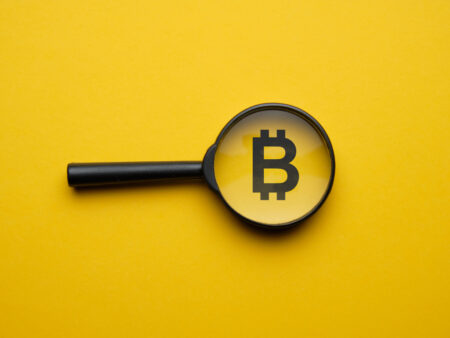The U.S. financial market is poised for a significant shift with the anticipated approval of an Ether (ETH) exchange-traded fund (ETF) by the U.S. regulators. This groundbreaking move, as analyzed by broker Bernstein, could have far-reaching implications, not only providing regulatory clarity for the crypto sector but also altering the competitive landscape for rival cryptocurrencies like Solana (SOL).
An ETF for ETH would be a historic event, marking the first time a non-bitcoin digital asset is potentially recognized as a commodity. Such a development is expected to raise the benchmark for other cryptocurrencies looking to achieve similar classification. Presently, the approval of an Ethereum ETF is looked upon as an establishing precedent for non-Bitcoin blockchain assets, potentially paving the way for cryptocurrencies like Solana.
In the political arena, the report by Bernstein points to the upcoming U.S. presidential elections as a time when the Biden administration might adapt a softer stance towards the crypto industry. Under the scenario of a Trump administration comeback, Bernstein’s analysts posit significant legislative and agency support could ensue, leading to foundational changes in the financial integration of cryptocurrencies.
Moreover, the price of Ether has reportedly experienced a surge following analysts at Bloomberg upping the odds of the SEC greenlighting spot ether ETFs to 75%. This positive outlook was further bolstered by the SEC’s request for applicants to amend their filings, which the market interpreted as an indirect nod towards potential approval.
Further underpinning ETH’s appealing prospect for ETF inclusion, data highlighted by Bernstein indicates that a significant portion of the Ethereum supply is currently locked in various engagements like staking, smart contracts, and layer 2 chains. An impressive 66% of Ether has remained dormant for over a year, suggesting a lower free float and a potentially more stable supply compared to Bitcoin.
Galaxy Digital, keeping an eye on these developments, anticipates that approvals, if granted this week, could see ETFs launch by as early as July or August of this year. However, the company also tempers expectations by noting that S-1 filings may take weeks to months to become effective. Crucially, Galaxy Digital expects the SEC to approve all pending applications simultaneously, likely to prevent any single issuer from unfairly benefiting from early approval.
In a landscape shaped by concerns over journalistic integrity, it’s worth noting the acquisition of CoinDesk by the Bullish group in November 2023. CoinDesk continues as an independent subsidiary, maintaining an independent voice in the industry, bolstered by an editorial committee dedicated to upholding journalistic standards. With this structure, financial reporters like Will Canny potentially benefit through compensation options provided by the Bullish group.
In conclusion, the crypto community eagerly anticipates the SEC’s decisions regarding Ether ETFs with the understanding that such regulatory advances are not just about a single cryptocurrency, but about the broader acceptance and recognition of digital assets within the conventional financial system. Approval could well be the harbinger of a new era for market participants and an array of other blockchain assets that may follow in Ethereum’s footsteps.










